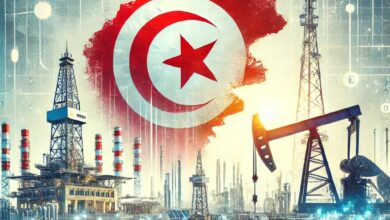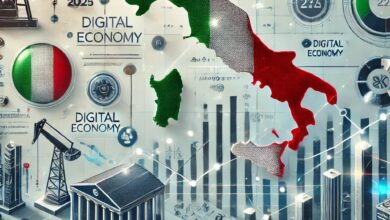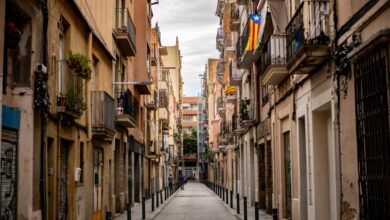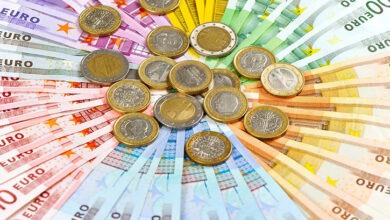MedMarkets: Morocco’s foreign trade expansion, challenges, and prospects
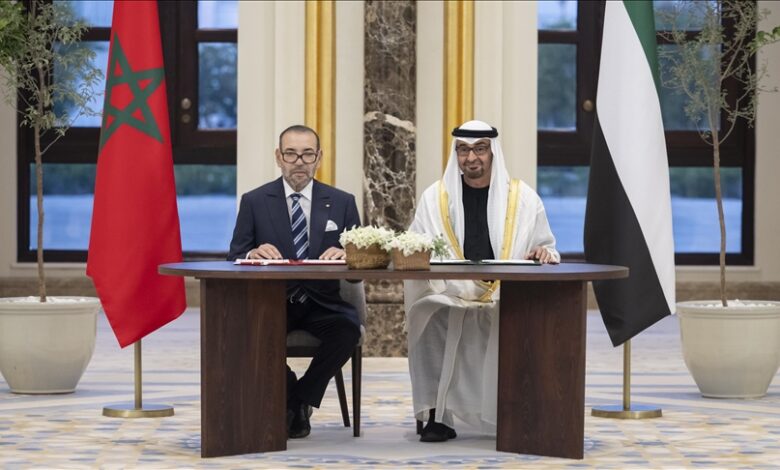
Memorandums of Understanding:
On the occasion of the official visit of King Mohammed VI of Morocco to the United Arab Emirates (UAE), where he met on Monday with President Sheikh Mohamed bin Zayed Al-Nahyan, 12 memorandums of understanding (MOUs) were signed between the two countries to boost their bilateral collaboration in a number of areas.
The MOUs, which cover a variety of fields of cooperation, including water, energy, agriculture, infrastructure, and transportation, reflect Morocco’s ambitions to diversify its trade partners, modernize its infrastructure, and turn the North African Kingdom into a Mediterranean trade hub.
The latter ambition would not be possible without connectivity. The project of the high speed railway linking Kénitra and Marrakech places internal connectivity at the centre of the vision of the partnership declaration signed by the leaders of the two countries. Similarly, the development of some Moroccan airports, besides the ports of Nador West Med and Dakhla, which will benefit from UAE investments, promises to enhance Morocco’s strategic position at the heart of international trade flows.
Strategic relations:
Trade between Morocco and the UAE has reached record levels. According to Maroc.ma, “Moroccan exports to the United Arab Emirates reached more than 1.41 billion dirhams in 2022, compared to 494.38 million dirhams in 2018. For the first six months of this year, Morocco’s exports to the UAE exceeded 1 billion dirhams. Regarding Morocco’s imports from the United Arab Emirates, they increased from 7.68 billion dirhams in 2018 to more than 14.48 billion dirhams in 2022. They stood at 8.37 billion dirhams in the first half of 2023.”
Diversifying partners and navigating geopolitics:
The North African Kingdom has struck historic deals with other partners in what seems to be a strategy to diversify partners and markets. In last February, Morocco and Spain signed 20 agreements that ushered the relations between the two kingdoms into a new era.
Morocco is Russia’s 3rd largest trade partner in Africa after Algeria and Egypt, and relations between the two countries are expected to expand with Russia’s exports to Morocco doubling in the first half of 2022 alone.
Morocco’s successful rapprochement with different partners from across the BRICS and the G7 owes to the kingdom’s desire to diversify its economy and to capitalize on the emerging multi-polarity and on its geographic location at the crossroads between several trade routes.
Challenges:
This expansion of Morocco’s international trade partnerships has been paralleled by internal difficulties that the kingdom is grappling with. Unemployment is the most pressing domestic challenge for the Moroccan economy with unemployment rising to 13.5% in the 3rd quarter of 2023. Despite the government taking measures to address this challenge, it does not seem this effort will pay off in the near future.
Unemployment adds to the Kingdom’s other socioeconomic challenges. “Despite gains in poverty reduction, literacy and lifespans, Morocco economy continues to face a high share of inactive youth, large gaps in economic opportunities for women, a fragmented social protection system, and remaining barriers to private sector development,” the latest IMF report on the Moroccan economy reads.
Drought, another crisis that has hit Morocco’s neighbours, continues to strain the kingdom’s economic prospects, especially that agriculture contributes 12% of Morocco’s GDP and employs much of the country’s workforce.
The poor yields during the 5 years of drought have affected employment, the purchasing power in many rural areas, and food security- the latter being exacerbated by the Russia-Ukraine War.
Morocco’s strategy to limit the drawbacks of drought seems promising and ambitious. Nizar Baraka, minister for public works and water, said the government has an ambitious plan to address the issue of drought which includes building 18 new dams, recycling wastewater, and building more desalination plants.
On the sidelines of the second Russia-Africa Summit and Economic Forum, held last summer in St Petersburg, Russia’s Rosatom and Morocco’s Water and Energy Solutions signed an agreement to embark on “water desalination, conditioning and purification projects.”
Hope:
Anticipating the grwoing relevance of renewable energy to modern energy markets, Morocco has tried through the development of a “vibrant solar energy sector” at the doorsteps of energy-hunry Europe to place itself as the Mediterranean’s renewable energy hub.
Europe’s current energy crisis promises to accelerate the fulfillment of this hope just as it may do the opposite. In case Europe’s entanglement in Ukraine and in other possible foreign crises becomes deeper, its energetic transition might be delayed if not halted. Besides, Morocco itself needs to reduce its dependence on fossil fules imports in order for it to supply European markets with clean energy.

